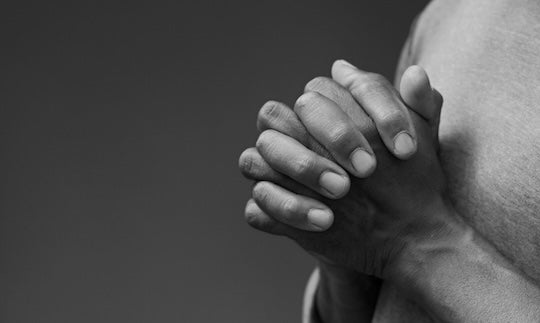HOUSTON - March 5, 2024 - Beliefs about the relationship between religion and science may be a key factor in people's views on mental health conditions like anxiety and depression, especially in minority racial communities, according to new research from Rice University.
Recent estimates suggest that nearly 20% of Americans suffer from some form of mental illness. However, racial-ethnic minority groups are less likely to report receiving medical treatment for mental health conditions, according to the study. Although more than half of white Americans with diagnosed mental illnesses report receiving professional care, just over one third of Latinos (35%) and African Americans (37%) with diagnosed conditions reported receiving similar care.

"The idea that medical care is an activity conducted in isolation from religion may influence how individuals understand both of these domains as well as their perceptions of mental health issues," said Elaine Howard Ecklund, principle investigator for the study and the Herbert S. Autrey Chair in Social Sciences, professor of sociology, and director of the Boniuk Institute for the Study and Advancement of Religious Tolerance.
"Religion can play an important role in how people explain and cope with mental health challenges," said the study's lead author Daniel Bolger, a postdoctoral research associate at Princeton University and non-resident fellow of the Religion and Public Life Program at Rice.
Racial minority groups in the United States regularly seek out religious support for mental health struggles when compared to white Americans - Black and Latino Americans often prefer consulting with religious leaders rather than mental health professionals. The study found that Black, Hispanic and other respondents are less likely to endorse biological explanations, like chemical imbalance, for mental health problems compared with their white peers, for instance.
"The association between religious practices and mental health may be especially pronounced for racial minorities who draw from religion or spirituality to cope with the difficulties of daily life," said Andrea Henderson, a co-principal investigator for the study. "Black Americans, for example, are not only more religiously involved than white Americans but also are more likely than white adults to believe that God is in control of earthly affairs and to report that religion is an important form of coping in times of distress. Evidence also suggests that religious beliefs and practices can help moderate the deleterious effects of racism and racial discrimination on mental health."
The study's results suggest the belief that "we trust science too much and religion not enough" may help explain, in part, Black adults' support for religious explanations of mental health conditions, specifically as a "test from God" and "possession of evil spirits," said Bianca Mabute-Louie, a Rice graduate student and study co-author.
Previous research suggests that the tensions between religion and science can often be explained by concerns over the moral influence of science and scientists on society and the struggle for authoritative power between the two institutions, according to the study. The "faith versus science" mindset has been found to influence COVID-19 vaccine acceptance, beliefs about evolution and other social issues.
"Drawing clear moral boundaries between religion and the sciences has had negative consequences for beliefs about health rather than just sociopolitical attitudes," Ecklund said.
There's evidence that Black Americans tend to defer health control to God, but the potential skepticism in science and medicine among Black Americans may also stem from a long history of medical mistreatment and racism as well as the stigma proceeding from racial bias and prejudice, which may shape the tendency of Black adults to draw clear lines between the role of religion and science in health matters, according to the study.
The authors find that people who draw boundaries between religion and science had higher odds of rejecting biological and social explanations of mental health conditions, whereas individuals who see religion and science as collaborative had higher odds of affirming biological and social explanations.
The collaborative view is an approach encouraged by many mental health professionals as it emphasizes that religion works together to provide a fuller understanding of reality - a framework that highlights assistance and cooperation as opposed to conflict and competition, Bolger said.
"Arguably, the pursuit of collaboration between science and religion has been best tackled within medicine in which collaboration-defined by its emphasis on cultural competency, mutual respect and a more holistic framework-has often been seen as beneficial to both individuals and institutions," the study reads.
The study is available via open access on Sage Journals. Co-authors include Princeton University's Bolger, University of South Carolina's Henderson and Rice's Mabute-Louie. Funding for the study was provided by the Templeton Religion Trust.






